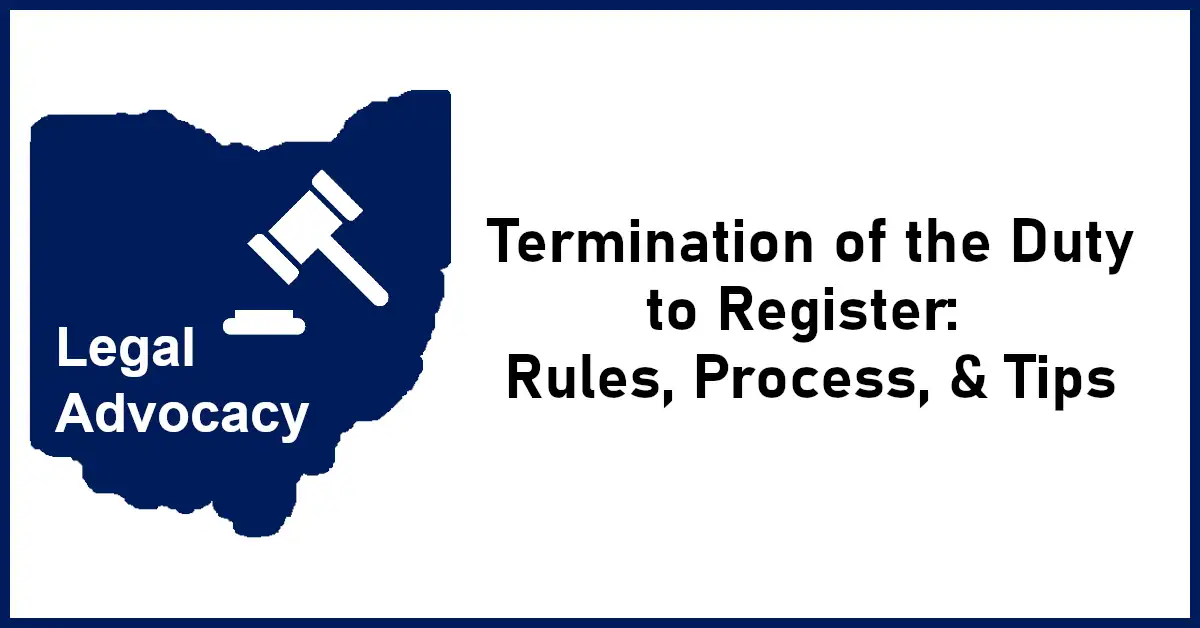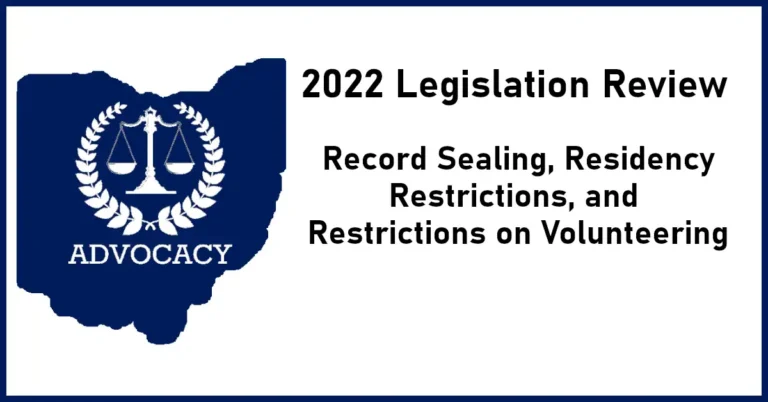by Barb Wright
April 2021
Depending on the date of your offense and the tier level classification, you may be eligible to petition the court for termination of your duty to register. Ohio’s current Sex Offender Registration and Notification (SORN) law specifically provides for certain offenders to petition for termination under Section 2950.15 or 2950.151 of the Ohio Revised Code. This article explains the termination process.
Who Is Eligible?
Don’t believe the rumor that Tier I offenders can petition after five years and Tier II offenders can petition after 10 years. Until recently, there was only one procedure for termination of adult registration duties: A person classified as a Tier I offender for an act which occurred after January 1, 2008 can petition the court for termination of registration duties after ten years of good behavior. Recent legislation also provides a petition for termination or modification for certain low risk, youthful offenders convicted of the offense of unlawful sexual conduct with a minor or its equivalent. There is no other petition available to adults registered under either SORN or Megan’s law.
The applicant must be able to demonstrate that he or she has completed all of the terms of his or her sentence and has been released from supervision. The applicant must then plead that he is not a danger to society, especially to children, and that it would be in society’s best interest to allow him or her to become a contributing member of society.
Before we discuss how to do that, there is one important caveat: in order to file a motion for early termination, an applicant must have completed a “sex offender therapy or child-victim offender treatment program.” But not just any program. The program must be certified by the Ohio Department of Rehabilitation and Corrections. Failure to complete the right program, through no fault of the applicant, can possibly derail the early termination before it even gets started. (Note: We are currently seeking an amendment to eliminate this requirement.)
How Does an Applicant Succeed in Terminating the Duty to Register?
As with any court proceeding, the court has the ultimate discretion after considering all the evidence. It is the prosecutor’s job to convince the court that registration duties should not be terminated, and the prosecutor will undoubtedly receive help from the probation department and the accuser, who will both argue it is unsafe to release you out into the world.
Your job, and the job of your attorney, is to convince the court that you are not a danger to society, and no reason exists for you to continue to register. You can start by demonstrating your stability through evidence that you are employed, attending school, volunteering, or any other stabilizing factors.
Demonstrate that you have suitable housing, and a support network of friends, family, neighbors, community members, church members, or anyone else who will write a letter on your behalf.
Demonstrate that you have paid your taxes, your bills, your child support, or any other financial obligations; and that you have a current driver’s license, CDL, or other evidence of compliance with traffic laws.
But most importantly, t show that you have been rehabilitated, and no longer pose a risk to society, especially to children. This is where you pull out all the stops:
- Consider having an independent risk analysis done by a therapist trained in sexual offense risk assessment.
- Obtain letters of reference from people that know you are registered, but still vouch for your character and the safety of society. If your offense involved a child, have a neighbor or friend write that he or she would trust you with his or her child.
- If you are active with your church, a volunteer organization, or your community, obtain letters of reference from not only the supervisor, but others who have worked with you.
- If there have been any issues with drugs or alcohol, you need to demonstrate that you have resolved those issues.
- Finally, your attorney should write a convincing brief explaining that it is the best interest of the public that your duties be terminated.
Don’t Go It Alone
I know it is difficult to trust an attorney after everything you have been through. But this may be the most important court appearance of your life, why take a chance or cut corners? It will be worth it to hire a trained professional with ties to the court and to the prosecutor; someone who has a private investigator to investigate any new allegations by the accuser; someone who knows his or her way around a courtroom.
Believe it or not, there are good attorneys who care about the injustice of SORN and recognize the unintended consequences to you and your family. The trick is to find them. Our list of member attorneys is a good place to start.


